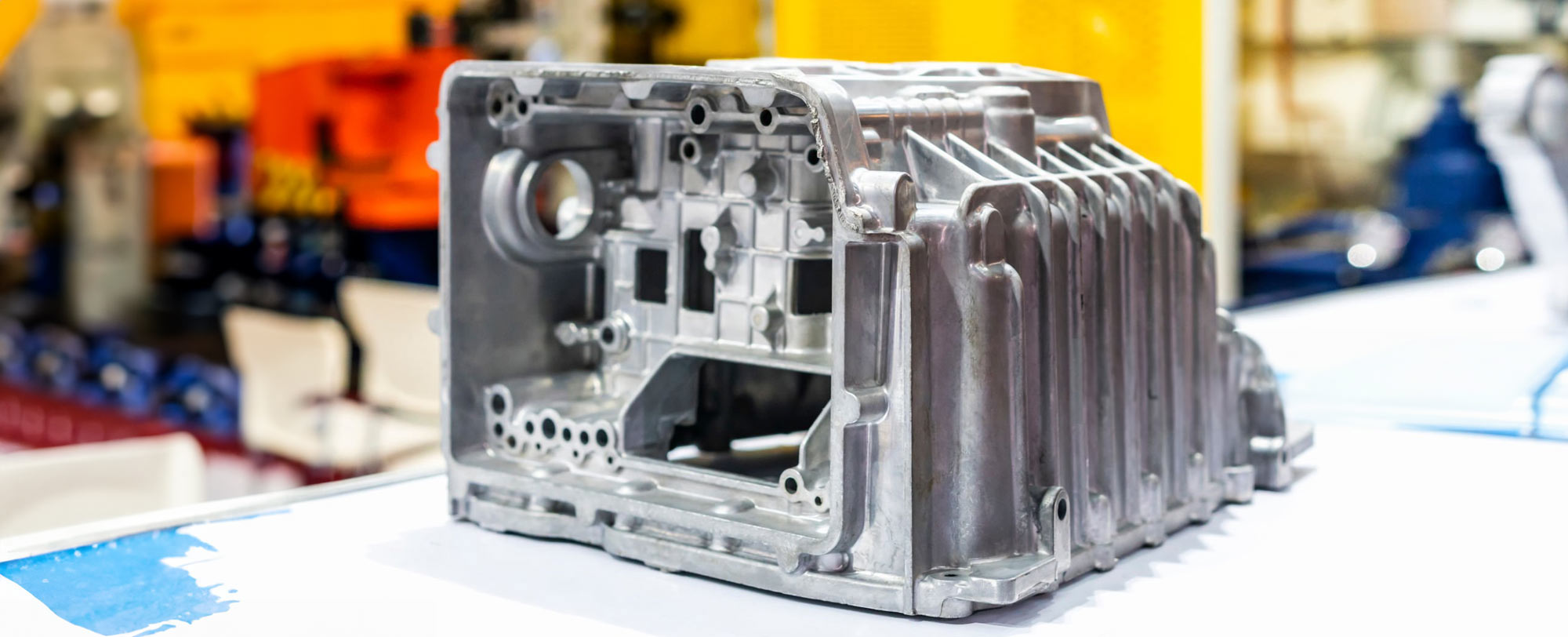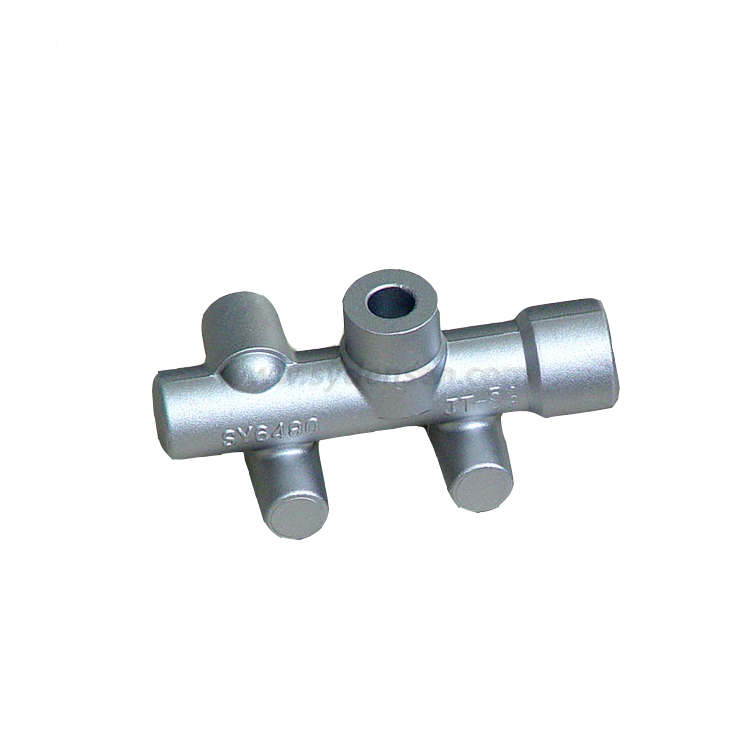Exploring how an Aluminum Foundry delivers high-quality results
Wiki Article
Checking Out the Ingenious Procedures Behind Modern Aluminum Shop Operations
Modern light weight aluminum foundry operations are undergoing substantial transformation. Automation and AI are improving production approaches, boosting both effectiveness and accuracy. The assimilation of 3D printing is enhancing mold development, while sustainability methods are ending up being much more important. Each of these developments plays an essential duty in redefining the sector. However, the ramifications of these modifications prolong past simple manufacturing efficiency. What challenges and opportunities exist in advance for light weight aluminum foundries in this evolving landscape?The Function of Automation in Light Weight Aluminum Foundries

Furthermore, automation contributes to boosted security criteria within the shop atmosphere. By transferring unsafe tasks to makers, human employees can focus on supervisory duties and high quality control, minimizing the danger of mishaps. On top of that, data analytics stemmed from automated processes provide valuable understandings into functional efficiency, leading to far better decision-making and continuous improvement. As the demand for aluminum items expands, the fostering of automation technologies will likely broaden, even more changing the landscape of light weight aluminum foundry procedures.
Innovations in Casting Technologies
Recent developments in casting modern technologies are transforming aluminum shop operations. Innovations such as 3D printing combination, progressed alloy formulas, and automated procedure optimization are boosting efficiency and item high quality. These growths are critical in fulfilling the developing needs of the industry.3D Printing Assimilation
Integrating 3D printing technology into light weight aluminum factory procedures has actually changed traditional casting techniques, improving both efficiency and accuracy. This ingenious approach permits the rapid manufacturing of intricate molds and cores, substantially lowering preparations and material waste. By utilizing additive manufacturing, shops can produce elaborate geometries that were difficult or formerly challenging to attain with traditional methods. The flexibility of 3D printing additionally allows quick style modifications, cultivating an extra dexterous production procedure. On top of that, this combination supports making use of lightweight frameworks, which is significantly essential in industries such as automotive and aerospace. As aluminum shops continue to adopt 3D printing, they position themselves at the forefront of technical advancement, driving improvements in item top quality and functional capabilities.Advanced Alloy Formulations
The advancement of advanced alloy formulations has actually substantially boosted spreading modern technologies in light weight aluminum factory operations. These solutions incorporate numerous aspects, such as magnesium, silicon, and copper, to boost mechanical homes and thermal resistance. By tailoring the composition of light weight aluminum alloys, manufacturers can accomplish specific efficiency attributes that meet the needs of varied applications, from vehicle parts to aerospace frameworks. Using advanced alloys also adds to lowered weight and raised stamina, which are essential factors in modern-day engineering. Additionally, advancements in alloy growth allow better fluidness during spreading, causing boosted surface finishes and reduced issues. Generally, advanced alloy formulas represent a substantial jump onward, positioning light weight aluminum shops to fulfill the evolving demands of different industries effectively.Automated Refine Optimization
Advancements in casting modern technologies have led the way for automated procedure enhancement in aluminum factory procedures. By incorporating sophisticated software and real-time data analytics, factories can now simplify production procedures and improve quality control. Automated systems monitor variables such as air conditioning, stress, and temperature prices, allowing for prompt adjustments that decrease defects and waste. In addition, artificial intelligence algorithms analyze historic performance information to predict optimal settings, thus boosting effectiveness and minimizing cycle times. Robotics likewise play a significant duty, dealing with recurring tasks that enhance safety and precision. On the whole, these developments not only drive functional efficiency yet additionally enable shops to satisfy the expanding need for premium light weight aluminum elements in different sectors.Smart Production and Industry 4.0 Assimilation
The assimilation of Smart Manufacturing and Industry 4.0 within light weight aluminum foundries is transforming functional performance. By leveraging IoT innovations, automation, and robotics, foundries can enhance manufacturing procedures and reduce downtime. In addition, information analytics offers important understandings that boost decision-making and drive constant improvement.IoT in Shop Operations
As producers increasingly embrace the Internet of Things (IoT), shop operations are experiencing a transformative change in the direction of clever manufacturing and Industry 4.0 assimilation. Precision aluminum casting. IoT technologies make it possible for real-time information collection and analysis, improving decision-making procedures and functional efficiency. Sensors and linked tools monitor tools efficiency, material usage, and environmental problems, permitting aggressive maintenance and resource optimization. This connection fosters a much more nimble production environment, where changes can be made swiftly in feedback to market needs. Furthermore, IoT promotes improved traceability and quality assurance, as data from the whole manufacturing cycle can be easily accessed and assessed. In general, the integration of IoT in shop procedures substantially enhances performance and drives innovation in aluminum production processesAutomation and Robotics Combination
Automation and robotics combination is transforming light weight aluminum foundry operations by boosting performance and accuracy. This transformative technique streamlines procedures such as molding, pouring, and ending up, decreasing human mistake and increasing outcome consistency. By employing sophisticated robot systems, shops can attain greater manufacturing rates while maintaining strict quality standards. Automated systems also enable real-time monitoring and flexible control, enabling swift changes to manufacturing criteria. Furthermore, the assimilation of robotics decreases labor costs and minimizes safety threats connected with hand-operated handling of molten steel. As foundries embrace smart manufacturing concepts fundamental in Market 4.0, the synergy between automation and robotics strengthens their affordable edge, leading the way for lasting development and advancement in the aluminum casting field.Information Analytics for Efficiency
Taking advantage of information analytics greatly enhances effectiveness within light weight aluminum factory operations, lining up with smart production and Industry 4.0 concepts. By leveraging real-time data collection and evaluation, factories can monitor manufacturing procedures, predict devices failures, and enhance resource allowance. This data-driven technique helps with insightful decision-making, allowing supervisors to determine bottlenecks and boost operations. In addition, predictive analytics encourages foundries to prepare for market demands, consequently lowering waste and guaranteeing timely item distribution. Assimilation of information analytics with IoT devices improves operational exposure, fostering a proactive upkeep culture. Eventually, applying these innovative analytical methods not just boosts performance however likewise drives technology, placing light weight aluminum foundries to fulfill the progressing needs of the sector while preserving one-upmanships in a quickly transforming landscape.Lasting Practices in Aluminum Casting
While the light weight aluminum spreading market has generally dealt with ecological difficulties, many shops are now adopting sustainable practices to alleviate their impact (aluminum casting). A considerable emphasis has actually been on reusing aluminum scrap, which not just decreases waste yet also preserves energy compared to main light weight aluminum manufacturing. Innovative melting technologies, such as induction heating systems, enhance energy effectiveness and lower greenhouse gas dischargesIn addition, factories are executing closed-loop water systems to lessen water usage and lower thermal air pollution. Making use of environmentally friendly binders in mold-making processes is acquiring traction, more lowering dangerous emissions.
Additionally, some facilities are buying renewable resource resources to power operations, aligning with global sustainability objectives. By incorporating these methods, the light weight aluminum spreading sector is developing toward a much more ecologically liable future, showing that financial development can exist together with ecological stewardship - Precision aluminum casting. These efforts show a dedication to sustainability and the significance of environmental accountability in manufacturing
Quality Assurance Innovations
As the aluminum spreading sector developments towards sustainability, the relevance of quality assurance innovations comes to be significantly apparent. Modern light weight aluminum factories are embracing innovative modern technologies to enhance their quality guarantee processes. Methods such as real-time monitoring and information analytics enable manufacturers to spot incongruities and flaws early in the production cycle. Implementing computerized examination systems furnished with machine learning algorithms warranties that items satisfy rigid high quality criteria while minimizing human mistake.Moreover, the assimilation of non-destructive screening methods, such as ultrasonic and radiographic examinations, supplies deeper understandings into the honesty of castings without harming the product. These technologies not only enhance product integrity yet also minimize waste, aligning with sustainability goals. On top of that, the fostering of standard quality frameworks helps streamline operations throughout different shops, guaranteeing consistency in outcome. Jointly, these advancements are reshaping quality control, fostering a society of excellence within the aluminum casting field.
Future Patterns in Light Weight Aluminum Shop Operations
What innovations lie in advance for aluminum factory operations? The future of aluminum shops is positioned for makeover via improvements in automation, expert system, and sustainable techniques. The assimilation of robotics and automated systems is expected to enhance performance and accuracy in the casting processes, reducing human mistake and labor costs. Furthermore, AI-driven analytics will allow real-time monitoring and anticipating upkeep, enhancing functional performance and minimizing downtime.Sustainability continues to be a focal point, with foundries significantly embracing green practices, such as using recycled light weight aluminum and creating low-emission melting innovations. Technologies in 3D printing are likewise anticipated to revolutionize mold-making, allowing for intricate geometries and lowered material waste. As the sector welcomes digitalization, data-driven decision-making will certainly end up being critical, enabling foundries to react promptly to market needs. Jointly, these trends assure to redefine light weight aluminum factory operations, making them more effective, lasting, and versatile to future challenges.

Often Asked Concerns
What Precaution Are Implemented in Aluminum Shop Procedures?
Light weight aluminum factory operations implement numerous precaution, consisting of individual safety devices, ventilation systems to take care of fumes, regular safety and security training, emergency reaction plans, and rigid surveillance of temperature and devices to stop mishaps and guarantee employee security.How Do Foundries Take Care Of Labor Force Educating for New Technologies?

What Materials Are Generally Recycled in Aluminum Foundries?
Light weight aluminum shops frequently recycle scrap aluminum, consisting of post-consumer products like beverage cans, automobile components, and construction products. This recycling procedure lowers waste and preserves sources, adding to a more sustainable light weight aluminum production sector.How Does Aluminum Spreading Impact the Setting?
Aluminum casting effects the environment with energy-intensive processes, greenhouse gas discharges, and prospective neighborhood pollution. Nevertheless, developments in recycling and sustainable techniques can alleviate these impacts, advertising a more green method to light weight aluminum production.What Are the Typical Lead Times for Aluminum Spreading Projects?
Common lead times for aluminum spreading jobs differ significantly, typically ranging check here from two to six weeks. Variables influencing these timelines include intricacy, order dimension, and product schedule, impacting overall production schedules in foundry operations.
Automation progressively plays a vital role in light weight aluminum shops, improving efficiency and precision in the production process. Advancements in casting modern technologies have actually led the way for automated procedure improvement in aluminum foundry procedures. Utilizing data analytics greatly improves effectiveness within aluminum foundry procedures, straightening with wise production and Sector 4.0 principles. A substantial focus has actually been on recycling aluminum scrap, which not only reduces waste however additionally conserves energy compared to key aluminum manufacturing. Aluminum foundries commonly recycle scrap aluminum, including post-consumer items like drink canisters, vehicle parts, and construction materials.
Report this wiki page